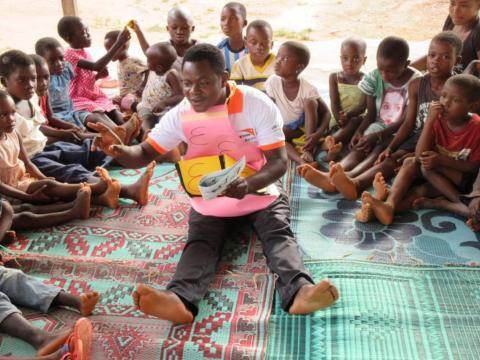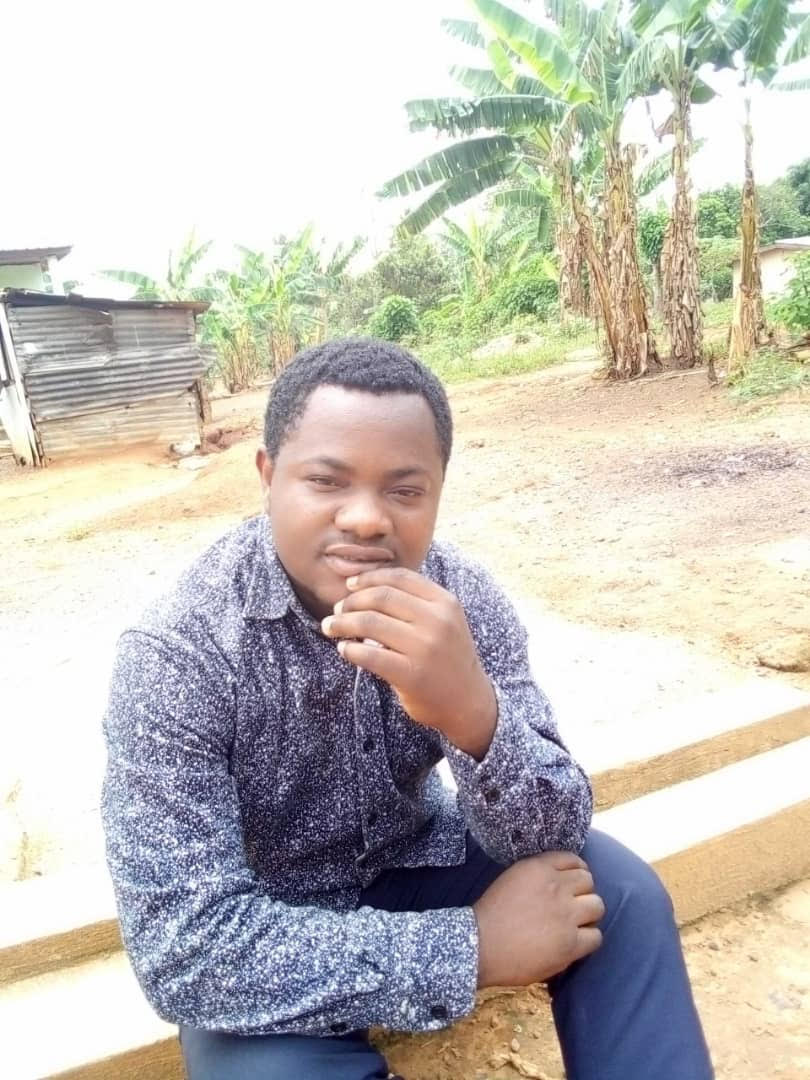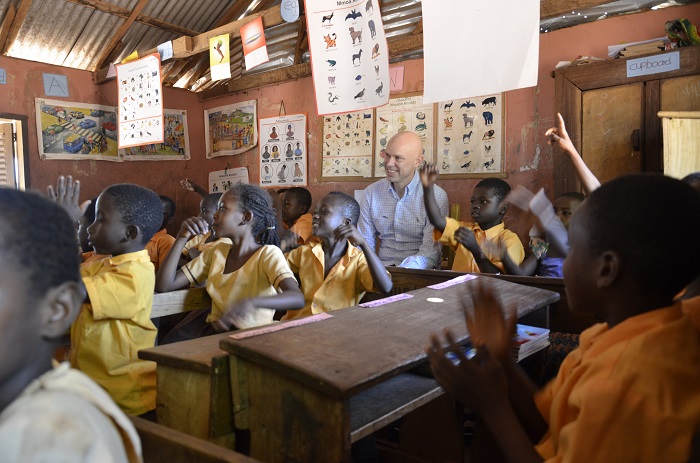Bringing mother language education home

By Andrew Ofosu-Dankyi, World Vision Ghana
Growing up, our teachers used the mother language to instruct us in school. At that time, there were few books in mother languages. It was interesting reading these stories and I still remember some of these stories even today.
- Elijah, reading camp volunteer facilitator
Elijah started as a reading camp volunteer in Bepoase community in 2016. The community is one of the over 100 communities in the Fanteakwa district of Ghana where after school reading camps have been established to help children break through barriers to literacy at an early grade.
The reading camp is a component of an early grade reading project[1] funded by the Korean International Cooperation Agency (KOICA) and implemented by World Vision in Ghana. The project supports government efforts to improve reading outcomes in primary schools – a challenge that needs to be urgently addressed. The 2013 and 2015 Early Grade Reading Assessment revealed that over 95% of children in grade 2 in Ghana could not read with comprehension.
The project thrives on the use of mother language as a medium to teach literacy, which aligns with Ghana’s Ministry of Education and the Ghana Education Service Mother Language Policy for primary education.
Unlocking literacy skills through mother language instruction
In many countries, the language used in the classroom, particularly from upper primary through secondary school, is not the language that students use in the home. World Vision’s early grade reading approach acknowledges the fact that children learn to read better and faster when they start learning to read in their mother language before moving to a second language.
“Learning to reading in one’s mother language enables you to understand the language and traditions very well,” said Elijah. “Due to my ability to read and write Twi [local language] even at my young age, I serve at the chief’s court as the community announcer. The community announcer is the master of ceremonies for funeral, birthday and community programmes. Sometimes I even receive invitations from nearby communities and all these come with some financial rewards.”
Due to my ability to read and write Twi [local language] even at my young age, I serve at the chief’s court as the community announcer.
- Elijah, reading camp volunteer facilitator
Elijah and hundreds of reading camp volunteers across Ghana have come to realise that learning to read in the mother language leads to quicker gains for learning to read in a second language.
“Though I had completed high school, I still had the English paper to write and I must confess, my reading was poor,” said Elijah. “I could hardly pronounce some words. Trained in and teaching children how to blend letter sounds has improved my own skill of blending letter sounds to read difficult words, now my spelling has improved so is my [English] reading.”
Elijah's ability to read and understand the Twi language has helped him secure a role on the chief's court as the community announcer. (Photo credit: Andrew Ofosu-Dankyi / World Vision International)
Elijah has passed the English paper after sitting for the senior high examinations. He hopes to enroll at the College of Education to become a teacher, a passion which is almost a reality.
“If teachers could realise that learning to read in the mother language can trigger quick gains in learning to read in English, most of the children who walk through school without learning anything will be better off,” concludes Elijah.
Mother language instruction must continue
Ghana has adopted the balance literacy approach to early grade reading, but this methodology has not sunk deep into the education system.
Apart from the low capacity of teachers and district directorates of education to teach and monitor literacy, there are few books for children in early primary grades or pre-school that are written in their mother tongue. With the gradual increase in awareness of the need to improve reading among children, the question is: How are the over 30,000 early grade teachers prepared to take the challenge? How are writers and publishers taking the challenge to make more books available to children?
World Vision President, Andrew Morely, visits a print-rich classroom in Ghana. (Photo credit: Nigel Marsh / World Vision International)
Many Ghanaian children in public schools struggle through school because they cannot read, thus they have to struggle to comprehend text at school. This situation has deepened the inequality in education achievements between the urban and rural communities.
Today, as the world celebrates International Literacy Day, let’s re-think how to support the over one million primary school children to break through barriers to literacy. It is time to be citisens and not spectators.
Learn more:
- What does a reading camp look like?
- Supporting mother language learning and life skills in Guatemala
- The alphabet song
- World Vision India helps children learn to read in the language they understand
[1] World Vision’s literacy programming was developed from the organisation’s experience piloting Save the Children's Literacy Boost model from 2011-2016. Literacy Boost is a proven literacy programme designed, developed and owned by Save the Children.

